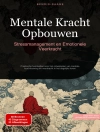Transitional Justice and Civil Society in the Balkans covers civil society engagements with transitional justice processes in the Balkans. The Balkans are a region marked by the post-communist and post-conflict transitional turmoil through which its countries are going through.
This volume is intended to provide a comprehensive introduction to research in transitional justice in this part of the world, mostly written by local scholars. Transitional justice is ever-growing field which responds to dilemmas over how successor regimes should deal with past human rights abuses of their authoritarian predecessors. The editors and author emphasize the relatively unexplored and under-researched role of civil society groups and social movements, such as local women’s groups, the role of art and community media and other grass-roots transitional justice mechanisms and initiatives. Through specific case-studies, the unique contribution of this volume is not only that it covers a part of the world that is not adequately represented in transitional justice field, but also that the volume is the first project originally researched and written by experts and scholars from the region or in collaboration with international scholars.
สารบัญ
1. Localizing Transitional Justice: Civil Society Initiatives and Practices in the Balkans, Olivera Simić and Zala Volčič.- PART I. Initiatives within the nation state.- 2. Civil Society and Post-Communist Transitional Justice in Romania, Lavinia Stan.- 3. Dealing with the past in post-war Croatia: perceptions, problems and prospects, Tamara Banjeglav.- 4. The failure of Macedonian post-communist transitional justice: lustration, between cleansing and parody, Despina Angelovska.- 5. Transitional and transnational justice in Bosnia-Herzegovina: analyzing civil society organizations discourses, Eunice Castro Seixas.- 6. The ‘Transitional Citizen’: Civil Society, Political Agency and Hopes for Transitional Justice in Bosnia-Herzegovina, Briony Jones, Alex Jeffrey and Michaelina Jakala.- 7. Failure of Transitional Justice in Albania: Too Much Politics, Too Little Debate, Arolda Elbasani, Artur Lipinski , Elidor Mehili.- 8. Truth and the Shadow of Justice, Jamie Rowen.- PART II. Transnational civil society practice.- 9. Structured Encounters in Post-Conflict/Post-Yugoslav Days: Visiting Belgrade and Prishtina, Orli Fridman.- 10. What About the Women? Transitional Justice and Gender in Bosnia and Herzegovina and Northern Ireland, Hedley Abernethy and Michael Potter.- 11. ‘Pillar of Shame’: Civil Society, UN accountability and Genocide in Srebrenica, Olivera Simić.- 12. Afraid To Cry Wolf: Human Rights Activists’ Conundrum to Define Narratives of Justice and Truth in Collective Accountability Efforts, Arnaud Kurze and Iva Vukusi.- 13. From International Courts to Grassroots Organizing: Obstacles to Transitional Justice in the Balkans, Jill Irvine and Patrice Mc Mahon.
เกี่ยวกับผู้แต่ง
Olivera Simić is a Lecturer with the Griffith Law School, Griffith University, Australia. She holds an LLB from Nis University’s Law School (Serbia), an LLM from Essex University (UK), an MA from UN University for Peace (Costa Rica) and a PHD from Melbourne Law School (Australia). Her research engages with transitional justice, international law, gender and crime from an interdisciplinary perspective. Olivera has published in journals such as International Journal of Transitional Justice, Law Text Culture, Women’ Studies International Forum, Journal of International Women Studies, International Peacekeeping as well as in books and book chapters. Her latest book, Regulation of Sexual Conduct in UN Peacekeeping Operations, has been published by Springer in 2012.
Zala Volčič is a Postdoctoral Fellow at the Centre for Critical and Cultural Studies, and a Senior Lecturer at the School of Journalism and Communication, University of Queensland, Australia. She has published numerous articles and book chapters on topics including nationalisms in the Balkans, the cultural consequences of globalization, and media identities in former Yugoslavia. Her work has appeared in journals such as Discourse and Society, Popular Communication, Journal of Children and Media, Journal of Global Mass Communication, Canadian Journal of Communication, Social Semiotics, Information Communication & Society, ICMR / Islam and Christian-Muslim Relations, Critical Studies of Media Communication, and Harvard International Journal of Press/Politics. Her latest book, Serbian Spaces of identity, has been published by Hampton Press in 2011.












